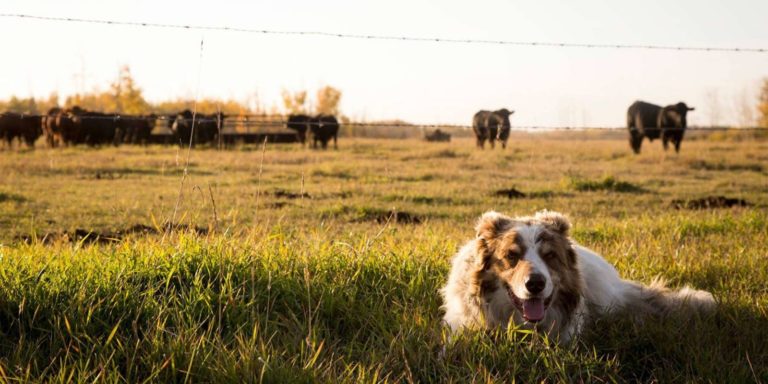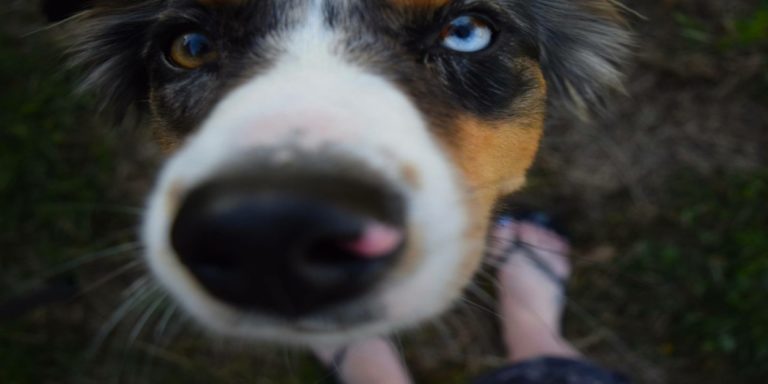Uncategorized
PRESCRIPTION RULE CHANGES
2018 PRESCRIPTION RULE CHANGES
As many producers are now aware, changes have come as to the purchase and sale of antimicrobials in Veterinary medicine in Canada starting December 1st 2018.
This info is an attempt to clarify the practical implications of these new Canada-wide standards.
Antimicrobial Resistance
- It is important to understand that these changes are coming into effect because of the current and developing problem of antimicrobial resistance (AMR).
- The animal industry is facing increasing scrutiny every day as to how we use antibiotics.
- In the USA alone, it is estimated that 80% of all antibiotics used in a year are used in feed to farm animals.
- It is believed that this use is contributing to the resistance of bacteria to certain antibiotics.
- Worldwide, 700 000 people die from antimicrobial resistant infections every year and by the year 2050, it is estimated this number will increase to 10 million individuals annually.
- To respond to this growing concern, the Canadian government developed a Federal Framework and Federal Action Plan on AMR.
- Health Canada has mandated (by recommendation of the World Health Organization) that all antibiotics will now be considered prescription products (including penicillin and tetracycline antibiotics).
- This is a federally mandated change – NOT a push by veterinarians to create a monopoly on the antibiotic market nor an attempt to limit your access to them
At the Veterinary Clinic
- This means all antibiotics must be purchased through a veterinary practice – no longer can they be purchased over the counter at UFA, Co-op, Peavey Mart etc. because now all antibiotics require a prescription.
- Provincial law (through the Veterinary Profession Act – Alberta Regulation 44/1986) mandates that a valid veterinary-client-patient relationship exists before any prescription drug can be sold to an individual
- This relationship is established through farm visits and communication with a veterinarian about the medical needs of your herd
To meet the requirements of the both federal and provincial legislation, it is necessary for veterinarians at the Westlock Vet Center to have medically important information about your herd. This information is necessary groundwork to start meeting the requirements of a prescription. To do this we will be using a Herd Health Questionnaire and/or site visits. This will provide an excellent opportunity to discuss vaccines, treatment protocols and general herd management for your herd. In the long run this will result in less hassle and time wasted when attempting to pick up antibiotics and vaccines for your herd from the veterinary clinic. With this herd information we will be able to create standing prescriptions in your file so that you will NOT need to talk to a veterinarian every time you need to pick up a bottle of antibiotics from the veterinary clinic. For all clients we will have to create a prescription for each medication we sell you and with it have a certain amount of refills/volume we can sell based off of your expected annual usage. If you go over this usage we will have to re-visit your usage amounts. Further to this if you are considering a different prescription medication that we agree will be effective, we will have to write a prescription for that as well before we can sell it to you.

How we intend to implement these new changes:
Existing clients:
For an Existing Client we will require a Herd Health Questionnaire be filled out. We will try to achieve this during regular visits to your farm. Any fees associated with filling out the herd health questionnaire will also be waived for 2019.
New or infrequent clients:
- For a New Client it will be required that a site visit and Herd Health Questionnaire be filled out. The initial site visit/consultation fee will be waived in the first year to establish a vet-client-patient relationship for 2019. Mileage may still apply but we will make all attempts to minimize this cost.
- For infrequent clients or clients with only a small amount of animals that we see periodically, you will have to prepare and plan ahead. You will not be able to just stop in to grab some antibiotics or other prescription medications if we do not have a regular relationship (loosely defined as at least once annually) with you and your animals. Phoning ahead to speak with a veterinarian and/or bringing along photos and videos of your affected animals may be enough to allow us to prescribe something for you, but not always. Reaching out to us to discuss the typical needs of your animals and what you typically use before you even need it can help us to avoid delaying you services in the case of an emergency.
- For clients that typically use another veterinary clinic but occasionally stop in to pick up some prescription medications from us you will either have to:
- a) Have your main veterinarian send prescriptions for all products you would expect to purchase from us or
- b) Schedule a site visit to establish a proper vet-client-patient relationship
If neither of these conditions have been met we CANNOT sell you prescription products, even if we have in the past.
How you will have to adapt to these changes:
As you can see things will not be as simple and fast as they used to be.
We are all adapting to these changes and there will be growing pains for all of us. We just ask for your patience, your cooperation and for you to plan ahead so we can all make this transition smooth.
Frequently Asked Questions
Q: What is a VCPR?
A: A veterinary-client-patient relations is defined by the Alberta Veterinary Association as:
- The veterinarian has assumed responsibility for making clinical assessments and recommendations regarding the health of the animal(s) and need for medical treatment.
- The veterinarian has sufficient knowledge of the animal(s) on which to base the assessment, diagnosis and treatment of the medical condition of the animal(s). This means that the veterinarian:
- is professionally acquainted with the keeping and care of the animal(s), and
- has documented relevant and timely interaction between the veterinarian, animal owner or caretaker and animal patients, and
- has documented medically appropriate information and knowledge about the animal(s)
- The client has agreed to follow the veterinarian’s recommendations and prescription.
- The veterinarian is available or has arranged for follow-up evaluation, especially in the event of adverse reactions or failure of the treatment regimen.
Q: How do I avoid inconvenience and added costs?
A: Establish a VCPR pro-actively, work with a veterinarian to see how your current herd health program can be strengthened to help reduce disease and how you can establish preventative measures. See how working with your veterinarian can be an investment that actually improves your bottom line.
Q: Will a veterinarian need to exam every sick animal before I can get a prescription to treat them?
A: Not necessarily, as long as you have a current Vet, Client, Patient Relationship (VCPR). It should be noted that there is no defined length of time when a VCPR is valid, just as long as the criteria in the first questions are met.
Q: Is a veterinarian the only one allowed to administer antibiotics?
A: No. Once you have purchased the antibiotic you are still able to administer it yourself as you have in the past.
Q: Will I need a new prescription every time I have sick animal?
A: Again, not necessarily. Work with your Vet to plan ahead. Once a herd health protocol is developed you can have prescriptions on file to be filled if they are needed.
Q: What if there are no veterinarians in my area?
A: You can have a VCPR with any veterinarian, local to you or not, provided they are licensed to practice in Alberta.
Herd Health Program
Your herd’s health is your profitability!
WVC has the skill set and experience to offer cow-calf and feedlot clients reliable and affordable full herd health services. Our veterinarians can provide you with practical and sustainable solutions to your herd health concerns.
We are available 24 hours a day, 365 days a year to ensure all bovine emergencies are taken care of as quickly as possible either on your farm or here in the clinic.
A Vet Client Patient Relationship(VCPR) is a relationship that is established between a veterinarian and a producer in order to accomplish a specific goal for your individual herd health. Each farm will receive a customized vaccination and treatment plan from our veterinarians to help your operation thrive. Work with a veterinarian to see how your current herd health program can be strengthened to help reduce disease and how you can establish preventative measures. See how working with your veterinarian can be an investment that actually improves your bottom line.
We provide to our beef clients the following services:
– Ultrasound pregnancy checking
– Obstetrical issues such as calvings, c-sections and vaginal/uterine prolapse
– Routine Surgery: cancer eye, LDA, RDA, hernia repair, dehorning
– Complete Breeding Soundness Evaluations for Bulls
– Semen Freezing
– Calf care such as broken legs, umbilical hernia repair, navel ill, scours management and treatment.
– Post-Mortem evaluation and diagnosis
– Lameness examinations
– VCPR visits complete with health and vaccine protocols specific to your herd
– Farm visits for individual animals or groups of animals with health concerns
– Alberta BSE Surveillance Program testing
– In House Laboratory Services: fecals, parasitology, blood work
– Export Services
– Comprehensive ambulatory services
– Insurance Reports
– Artificial Insemination, Embryo Transfer
Did you know that Westlock Veterinary Center offers a rebate to Beef Clients that utilize our herd health program to the fullest extent??
If you think you qualify or want to learn more, contact us today.
780-349-3663
[ninja_form id=1]

November is Senior Pet Month
Here at Westlock Veterinary Center we are going to be celebrating Senior Pets for the month of November!
Did you know that when your pet reaches the age of 7 it is time to start having regular blood and urine screens done?
Aging is not a disease but it does increase the occurrence of certain conditions such as arthritis, kidney disease, heart disease, and cancer. Having regular screenings done may find a disease before your pet starts showing signs.
Mature animals are also at a higher risk for:
- Obesity
- muscle loss
- renal disease
- masses and tumours
- cataracts
- hypo or hyperthyroidism
- diabetes
- dental disease
The earlier your veterinarian diagnoses an underlying condition in your pet, the more options there will be to treat or manage the disease and give your pet a better quality of life.
Targeted nutrition can support your pet at his/her different stages of life. Based on the findings from your pet’s exam your veterinary team may advise a change to their nutrition. Talk to your veterinarians or technicians about your pet’s health and we will find a diet that has been created to meet the needs of your individual cat or dog.
Fun fact: Dogs and cats age 5-8 times faster than humans, so dogs by age 7 and cats by age 10 are considered seniors.
Call today to book your pet a senior wellness exam at a discount for the month of November!
Wellness profile includes examination, blood work, & urinalysis.
780-349-3663
The Dangerous Effects of Marijuana & Pets
Now that marijuana is legalised, there may be an increase in pets accidentally ingesting the drug. So here is some information on what to watch for and what to do if you know, or think your pet may have ingested marijuana and how dangerous the effects can be.
Can Dogs Get High?
The answer is yes…and this is how…
1. Ingesting marijuana leaves/buds directly
2. Ingesting marijuana laced food
3. Secondhand smoke
While humans use the drug by choice to get high, pets do not, and they can become extremely sick.
What Are the Marijuana Effects on Dogs?
1. Lethargic
2. Breathing problems
3. Lower blood pressure
4. Abnormal heart rhythms
5. Loss of balance
6. Urinary incontinence
7. Seizures/Coma
8. Severe Depression
9. Sensitivity to light and sound
10.Excessive Salivation
What should you do if this happens?
No matter how much marijuana your pet has consumed, if any of these symptoms are present bring your pet to your veterinarian for appropriate treatment. ALWAYS be honest with your veterinarian, the more information you give us the better we can treat your pet. We are here for your pets health and safety and not to judge you.
The amount of marijuana needed for a 150-pound human to feel the effects will be nearly 10 times the amount a 15-pound dog needs.
What about cats you ask?
Just because dogs account for nearly all reported cases of marijuana poisoning it doesn’t mean it can’t happen to cats. Cats just aren’t as curious as dogs and don’t have the same habit of eating random things off the ground. Symptoms to watch for in cats is similar as to those in dogs.
Bottom Line:
When it comes to marijuana use and pets, BE CAREFUL. Keep all forms of marijuana, medical or recreational, out of reach of your pet.

Pet Vaccines
Pet Vaccines – What you need to know…
For Dogs: Core vaccines are the basic distemper shot (DA2PP) and the rabies vaccine
CORE:
(D)Distemper: is a deadly disease and is frequently fatal
(A2) Adenovirus: causes hepatitis and respiratory disease
(P) Parainfluenza: is a respiratory disease
(P) Parvovirus: is a deadly intestinal infection
(R) Rabies: a deadly neurological disease, contagious and fatal to humans
Non-Core
(B) Bordetella: a respiratory disease
For Cats: core vaccines are the basic distemper shot (RCP) and rabies vaccine
CORE:
(R) Rhinotracheitis virus: infection that causes respiratory disease
(C) Calicivirus: infection that causes respiratory disease
(P) Panleukopenia: infection that causes bloody diarrhea, can be fatal
(R) Rabies: a deadly neurological disease, contagious and fatal to humans
Non-Core
(FeLV) Feline Leukemia Virus: acts like a human AIDS virus
(FIV) Feline Immunodeficiency Virus: another virus that acts like a human AIDS virus
To book a vaccine appointment or to ask what vaccines your pet may need, call us today.
780-349-3663






